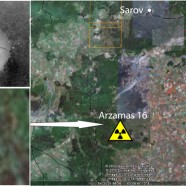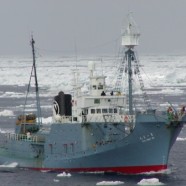The fragrance of rosewood floats over CITES
This morning, the 15th Conference of States at CITES decided by consensus to approve the Brazilian proposal to list Brazilian rosewood (Aniba rosaeodora) in Appendix 2. The international trade in rosewood essential oil will be controlled from now in importing and exporting countries. The listing makes a provision for the exclusion of finished products, packaged and ready for sale. Ladies, you do not need a CITES permit to travel with your No5.
Brazilian rosewood is also called pau rosa, its Brazilian name, to avoid confusion with other species from around the world which are also named rosewood because of their color. Pau rosa is exclusively present in the Amazon basin, principally in Brazil and French Guiana. Some populations were counted in Colombia, Peru, Ecuador, Guyana, Suriname, and Venezuela. As the Brazilian proposal emphasizes, the growth of this tree is slow while its exploitation is rapid. The harvesting surpasses its capacities for natural re-growth. All the countries in the region supported Brazil, as well as Mexico and Costa Rica on behalf of 25 Central American and Caribbean countries. Those which were against it didn’t so much as lift a finger.
Phew! The Compromise went Plonk!
Arriving confident and ready to fight, promoters of the so called “compromise” document are today taking a low profile. Two days of “private meetings between commissioners” safe from the eyes and ears of NGOs proved fruitless. Japan, Norway, Island and Korea were successively heard by groups of 5 countries during thirty odd sessions over two days. The process was compared by some delegates to “speed dating”.
Now some countries feel, that they should start anew, others believe that they should take into account the documents on the agenda as basis for future work. The European Union prefers the latter. Formalities on how to move the discussion forward during this “new period of reflection” will be taken before the end of the debates.
“Forest Fires: Beware the Radioactive Fallout”
The site Arzamas-16 is threatened by forest fires since the middle of July 2010. The exact location of the storage and waste on the site is unknown. The current management of plutonium storage, enriched uranium and nuclear warheads are the subject of diverging information. The military site is in activity since 1946. For more than half a century, experiments and nuclear activities have left undeniable traces on the site (see the assembly of photos). If the fire reaches strategic and radioactive sectors this could spark a major event but also cause global contamination. The Russian government and fire fighters lack of insight to foresee the risk caused by the fires around this dangerous site and to control them is shocking.
“Forest Fires: Beware the Radioactive Fallout”
The site Arzamas-16 is threatened by forest fires since the middle of July 2010. The exact location of the storage and waste on the site is unknown. The current management of plutonium storage, enriched uranium and nuclear warheads are the subject of diverging information. The military site is in activity since 1946. For more than half a century, experiments and nuclear activities have left undeniable traces on the site (see the assembly of photos). If the fire reaches strategic and radioactive sectors this could spark a major event but also cause global contamination. The Russian government and fire fighters lack of insight to foresee the risk caused by the fires around this dangerous site and to control them is shocking.
“Forest Fires: Beware the Radioactive Fallout”
The site Arzamas-16 is threatened by forest fires since the middle of July 2010. The exact location of the storage and waste on the site is unknown. The current management of plutonium storage, enriched uranium and nuclear warheads are the subject of diverging information. The military site is in activity since 1946. For more than half a century, experiments and nuclear activities have left undeniable traces on the site (see the assembly of photos). If the fire reaches strategic and radioactive sectors this could spark a major event but also cause global contamination. The Russian government and fire fighters lack of insight to foresee the risk caused by the fires around this dangerous site and to control them is shocking.
Whales, Nagoya Blabla
The Conference on Biodiversity taking place in Nagoya Japan ends today while, in November, the Japanese whaling fleet will leave for Antarctica to catch 1,000 whales. Since 1986, when the moratorium on commercial whaling entered into force Japan has killed, in the name of science, 13,210 whales of which close to 10,000 were caught in Antarctica, a whale sanctuary since 1994. Considering the state of the Japanese whaling fleet, the entire Antarctic ecosystem is threatened by an oil spill.
The mother-ship, Nisshin Maru, ex Chikuzen Maru was launched in 1987. She was initially a stern trawler in American waters. She was quickly converted into a whaling factory ship. She works in the Antarctic Ocean without a double hull or reinforcement against ice and with only one engine. In February 2007, while the Nisshin Maru was sailing in the Ross Sea, a major explosion occurred aboard killing a crewmember and immobilising the vessel leaving her to drift for several days in the ice-infested Southern Seas. According to New Zealand authorities, the incident is one of the most serious to have occurred in the region. The Japanese did not immediately send out an SOS. The Nisshin Maru is also a little tanker with a capacity of holding 2,600 tons of fuel.
Whales, Nagoya Blabla
The Conference on Biodiversity taking place in Nagoya Japan ends today while, in November, the Japanese whaling fleet will leave for Antarctica to catch 1,000 whales. Since 1986, when the moratorium on commercial whaling entered into force Japan has killed, in the name of science, 13,210 whales of which close to 10,000 were caught in Antarctica, a whale sanctuary since 1994. Considering the state of the Japanese whaling fleet, the entire Antarctic ecosystem is threatened by an oil spill.
Fish Eat Whales
The 63rd annual meeting of the International Whaling Commission (IWC) will take place from July 11th to 14th on the Channel Island Jersey.
Pro-whaling countries often state that whales must be culled to avoid competition with human fisheries. Japanese “scientific” documents show images of whales’ stomachs overflowing with small pelagic fish. According to Robin des Bois a defender of whales, one must continue to demonstrate that whales have positive effects not only on the world’s marine ecosystem but on all ecosystems. We cannot accuse whales of taking all and giving nothing to the oceans, while it is Man who takes all and gives nothing but pollution and increasing disturbances.











